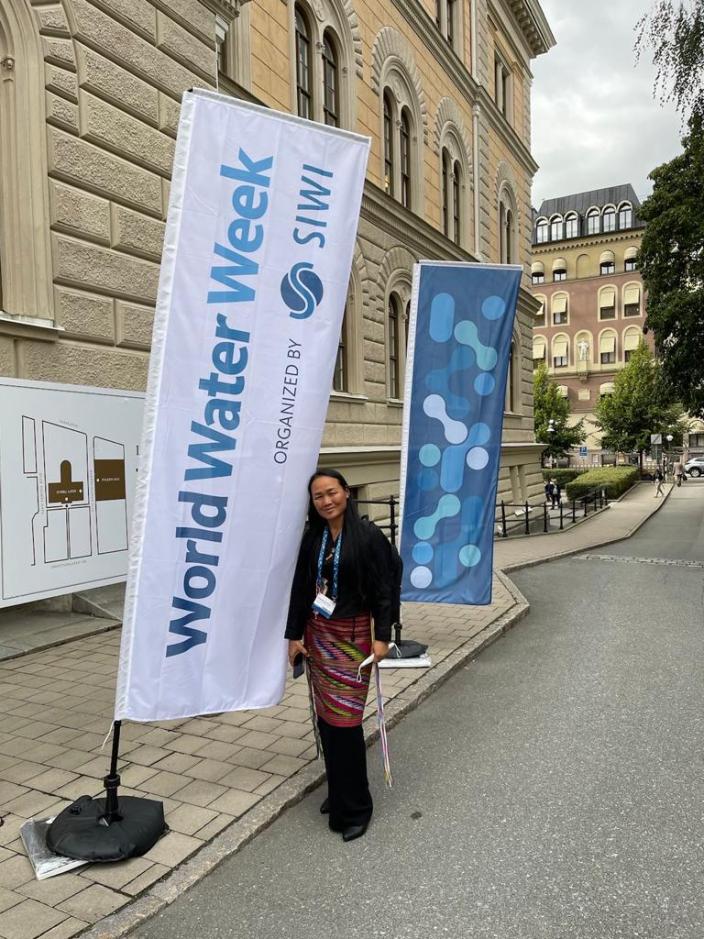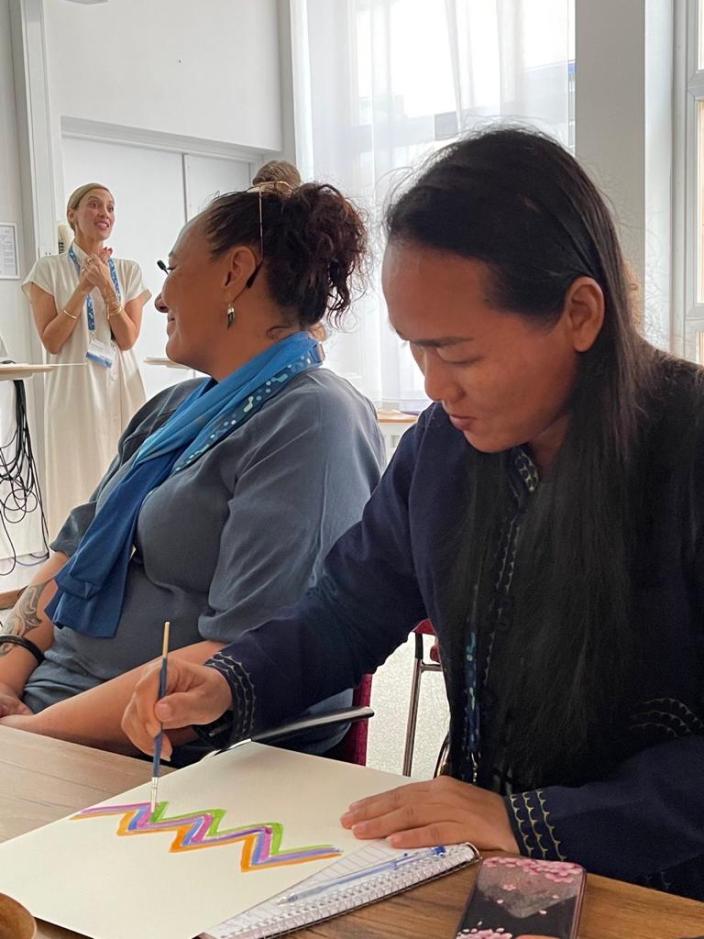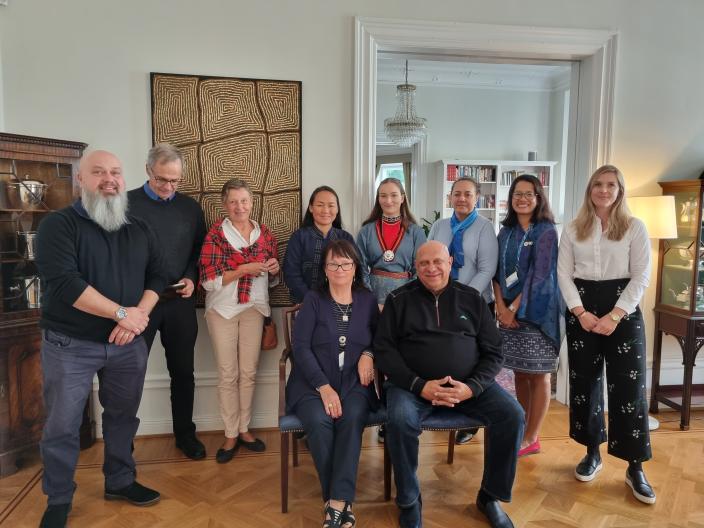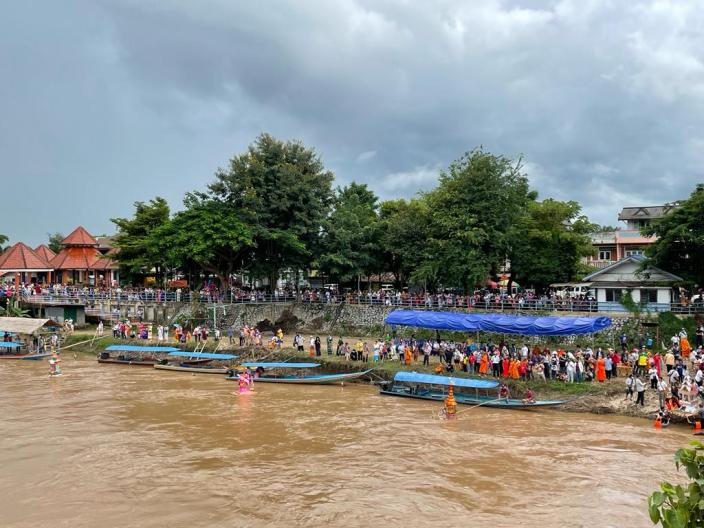Authors: Socheata Sim & Saengrawee Suweerakan
The Mekong Region is facing unprecedented challenges to ensure sustainable, healthy transboundary rivers and more equitable development. Indigenous people, forest, and riverine communities and those living downstream, particularly women and girls, experience the greatest loss through negative economic, environmental, social, and cultural impacts. Their rights to a sustainable livelihood are being denied and their culture, woven into the natural environment, is threatened. Their knowledge and experience on how to care for and sustainably maintain our ecosystem is often ignored as ‘not scientific’.
World Water Week (WWW) 2022 was convened under the theme: Seeing the Unseen: The Value of Water organized by Australian Water Partnership (AWP). It was held online and on-site between 23rd August to 1st September 2022 in Stockholm, Sweden. In an effort to ensure the voice of a consistently marginalized and unheard group - Indigenous people, Oxfam Mekong Inclusion Project 2 supported Ms. Saengrawee Suweerakan, an Indigenous Shan woman from the Network of Indigenous Women in Asia (NIWA) to speak at the session Thousands of years of lessons: Raising the voices of Indigenous Peoples. Following is a conservation with Ms. Saengrawee aka Saeng about her experiences during the WWW 2022.

Ms. Saeng at the WWW2 conference, Stockholm. Photo: Socheata Sim
Since growing up, Saeng has a deep connection with river and carries a duty to protect the river. She recalled, “My grandfather said “คนกินน้ำไม่เคยเห็นต้นน้ำ คนกินข้าวไม่เคยเห็นต้นข้าว” which means people who drink water have never seen watersheds. People who eat rice have never seen a rice plant. Our Shan peoples has learnt from generation to generation that "Water Is Life. Protect water means protecting our and other people's life. This is our duty.”
Saeng’s hometown lays next to "Kok River", a tributary river of the Mekong that flows eastwards across Shan state, Myanmar to the Thailand border, crossing in Chiang Rai and Chiang Mai provinces in northern Thailand, before meeting the Mekong River.
Along the upper basin of Kok River - where Saeng is from, eight Indigenous groups have lived there for generations. These include including Shan, Tai, Lue, Lahu, Lisu, Ahka, Keren and Lue Mien communities. Each group practices different traditional ways of life, but the river is always regarded as their holy symbol of respect and harmony with nature.
Before 1991, her village was covered by a thick rainforest and her village enjoyed farming and fishing. They could catch fish weighing around 100 - 130 kilos using traditional methods. During the rainy season, there were many types of fish that could easily be found in Kok River. Using boats as transportation made it easy to connect with other Indigenous communities.
After 1991, mega developments such as hydropower dam construction, sand suction from the river, as well as climate changes have negatively impacted Indigenous people who live along Kok River. Villagers are not able to find big fish anymore as the Pa Yang Mon dam construction blocked river flow from the Mekong. In addition, there are about 30 sand suction ports placed around the Kok River for major constructions in the city. As a result, villagers are poorer with less access to clean water and proper sanitation, their livelihood options are more limited and they experience higher levels of pollution of available water resources, are not consulted on policies and projects affecting their water and land rights and their ancestral worldviews, knowledge and practices are ignored.
“We do not want to go against the development, but we want to be part of the planning and decision-making process. The project should also benefit to our Indigenous people and the project should not destroy our traditional life,” Saeng remarks.
Currently, Saeng and her community are building a working group to conduct research to document the situation of Kok River. The group will publish the research for the public and decision makers to understand how important Kok River is to community.
Saeng found the opportunity to join World Water Week significant. As an Indigenous woman, to be able to represent her community and share their experiences and concerns to a wider audience was important and her first experience of international dialogue and collaboration.
“It’s a privilege for me to be able to join this international space. I learnt a lot from the forum, and I could see that there is cooperation and value given to river people,”
Although only three onsite sessions among the 420 online and onsite touched on indigenous issues, Saeng is optimistic about the platform and the engagements between the representatives of WWW 2022. One of the three sessions was held by Water Aid, Columbia. The event asked participants to draw what the river meant to them. Saeng’s picture shares her love of the river and its cultural, community and spiritual significance to her.

Ms. Saeng is drawing a picture about the river that shares the love with her culture and community. Photo: Socheata Sim
The second session was called “Thousands of years of lessons: Raising the voices of Indigenous Peoples” where Saeng and the two other Indigenous women were given space to share about the important of the river to their, traditions, livelihoods, and its importance their communities. The third session was with a Samee Indigenous group, where Saeng shared experiences of her Shan community and their plans for a future group to protect the river.
Oxfam Mekong Inclusion Project phase 2 aims to support young and Indigenous women to raise their voices and have their interest heard at public events and in decision-making processes at local, national, and regional level. The project is delivered as part of a consortium led by Oxfam and co-implement with International Rivers. The program supports more than 30 civil society partners across the Mekong Region. The project is funded by the Australian Department of Foreign Affairs and Trade (DFAT) and the Swiss Agency for Development and Cooperation (SDC).

Ms. Saeng and representatives from the Sami Parliament and First Nation Australia at the Australian Ambassador Residence in Stockholm. Photo: Australian Embassy in Sweden.
